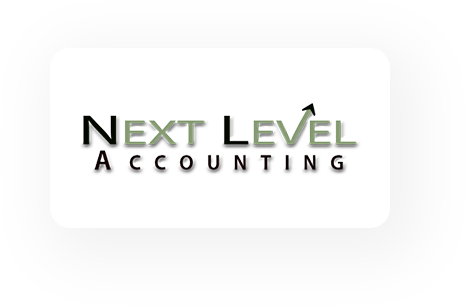-
Our clients own a business or run a company. They are Entrepeneurs or operators of a growing business.
Their sales fall somewhere between $500,000 and $10 Million annually.
Usually, they spend too much of their time dealing with Administrative headaches, taking them away from areas that make money, or that they know best? A study by ADP showed that business owners spend 58% of their time in Administration and Human Resources.
Their business is growing, but maybe not at the pace that they would like? Maybe they haven’t taken the time to develop a business plan for the next year, let alone next three years.
They have a CPA to do taxes or financial statements, but most of the review of that information has to do with the past.
Some even get monthly or quarterly financial information, but it doesn’t really tell them how well the business operates, and they really don’t have the time to dig into the numbers.
They would like to get away from the business for a vacation, but there is no one to take your place.
They know their existing bookkeeper or internal accountant can no longer handle the needs of a growing company, but they are not ready for a fulltime controller?
If any of the above sounds familiar we can help.
-
Reaching the "next level" depends on what you consider as the "next level". In our journey, there is always another level to reach and aspire to. Maybe your business has reached a plateau, where growth is grinding to a halt? This may be due to one or more of the following limitations:
- Insufficient financing to fund more inventory or equipment
- Staffing shortages, either in quantity or quality of personnel
- Geographic limitations, due to inability or unwillingness to work outside of a certain area
- Poor quality of accounting information, hurting your ability to react to growth.
Maybe the reason for the lack of growth is complacency? It can be very easy to become complacent when things are going well; many businesses see no reason to change if they’re maintaining the status quo. Then, boom they realize – too late – that their smaller competitor is starting to run them out of business. There really is no status quo; there is always movement up or down. Growth doesn’t just happen. You have to plan for it. You control the items that are within your ability to control, and anticipate changes that take place outside your circle of influence. Regardless of the current level of your business, there is always room for growth.
We can help you plan for that growth, in a variety of ways. With your help, we develop sales forecasts to build the road map for your business. Those forecasts will become the basis for balance sheet and income statement forecasts, and the cash flow forecast that becomes a by-product of the others. Through the process of developing these forecasts, we come to understand the needs of the business either in equipment, personnel or cash, and then we develop plans to meet those needs. This could come in the form of assisting you with obtaining bank financing. Throughout the process, you have a business partner that will help guide you along the plan for growth.
-
A business needs a road map or plan for success. A CFO is familiar with strategic planning and can assist the owner in developing that road map. Whether that takes the shape of budgets and forecasting, or a fully developed strategic plan, the plan helps the owner address where they want to go and the steps needed to get there.
As your business grows in size or number of employees, several things happen. Growth in sales can cause growth in accounts receivable and inventory, putting strains on cash flow. As your cash is tied up in A/R and inventory, it puts pressure on your existing line of credit. A CFO or Controller can anticipate this growth through the use of cash flow forecasts and take steps to make sure the cash is there when needed.
Part of managing the growth in receivables and inventory involves focusing time on them to make sure they don’t grow unnecessarily. That should be the job of the CFO or Controller and the accounting department.
Growth in employees has another effect. It requires more administrative time for one. A CFO or Controller has the experience in dealing with Human Resources, and can free up executive or owner time from that function. The time freed can be used in what the owner does best, and not in administration.
-
While CPAs are very good at what they do, tax advice, tax returns, financial statements, most of this work other than the tax advice involves historical information. Their business is more in the area of looking back. A CFO or Controller helps run the business, and that requires looking forward.
During an audit, a CPA will acquire an understanding of the business, but most businesses do not require an audit. As former CFOs and Controllers, we already have an understanding of many types of businesses. In addition, we have knowledge of many business and accounting processes common to many companies. This knowledge gives us skills in the following areas:
- Budget Preparation
- Cash Flow Forecasting
- Choosing a Commercial Liability Insurance Carrier
- Payroll and Human Resource Matters
- Determining Profit Margins Among Various Products or Services
- Improving Profit Margins Through Pricing Strategies
- Improving Collection of Receivables
- Identifying Areas to Cut Costs
- Negotiating/Assisting with Bank Financing
A CPA spends most of his time in his office. Your CFO or Part-time Controller takes a hands-on, on site approach and involves himself in the business. He will devise a set o
-
Your business is growing and with all business ventures as a company grows, new challenges arise. Most business owners and entrepreneurs start a business and utilize most of their time generating business and expanding the operation, but as businesses grow entrepreneurs allocate more and more time to administrative tasks. In fact some estimates show that entrepreneurs spend up to 58% of their work week with administrative and non-income generating tasks. This administration can actually cause some businesses to stop growing altogether. The old adage of time is money will always be applicable, and if you aren't spending time on the revenue side of the equation, the expense side and time sucking administration can overwhelm your business.
One of the most time consuming and, for most entrepreneurs, mind numbing tasks of owning a business is the record keeping and accounting function. As arduous of a task as accounting can be, the importance cannot be understated. Bookkeeping is the function of keying in transactional data. Accounting is the function of processing that data into actionable information, the information that tells a story of your business.
Your accounting function though, if used properly, isn't just a score keeper of the past. It becomes a decision making tool to determine how to get your business from point A to point B. This analysis allows you to separate yourself from your competition, by making better decisions faster. We take our years of business experience and establish a best practice accounting system. This system will allow us to give you accurate and useful accounting information. We will benchmark your results against other companies in your industry to find areas of improvement. Most importantly we will free up your time to do the things that generate revenue all the while gathering better information faster, so you can grow to your maximum potential.



